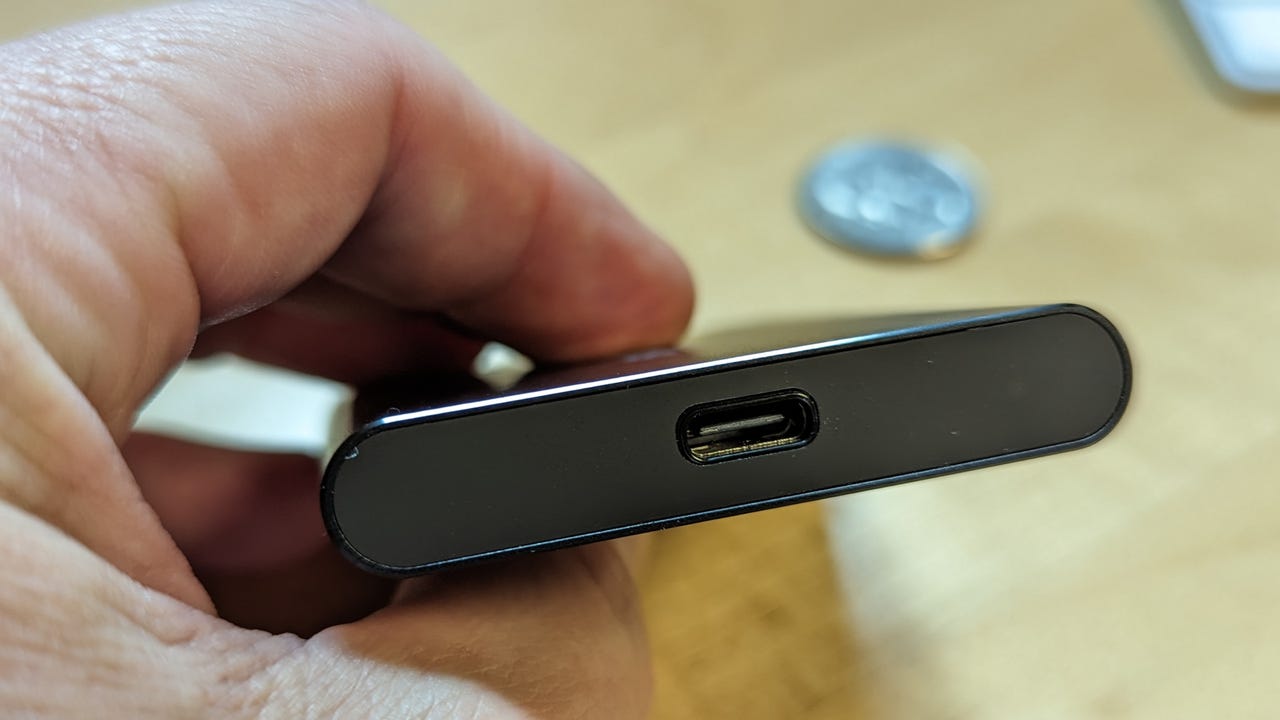































 Jack Wallen/
Jack Wallen/ Last year I purchased a cinema-level camera that would allow me to dive into the world of filmmaking. The camera usesCFexpress 2.0 type B SE memory cards , which can get very expensive. For a 512GB card, you can expect to pay upwards of$130. Try to purchase a 1 TB card and you're looking at nearly$500. And given how much space 4K film can take up, you can expect to buy several cards for regular use.
Also: This$12 accessory turned my extra SSDs into useful external storage
Now, imagine you could instead use an external hard drive for half the cost. When I discovered my camera could employ external drives, I decided to go that route. Worst case scenario, I'd wind up with a pair of external SSD drives I could use for any number of applications.
So, I purchased a pair ofSamsung Portable SSD 1TB T5 drives and hoped for the best. This is an older model drive, but it's one that was listed as fully supported by the camera. I could have gone for the newer T7 model, which can be had for a considerably cheaper price on the Samsung site (right now theT7 1TB drive sells for$70 ), but I wanted to be certain the external drive would perform well enough for the camera (since that's the purpose it would serve). If, however, you're only looking to use the drive as a standard backup or portable computer drive, go with the T7 and not the T5.
This portable SSD drive offers performance that can handle nearly any use case and is small enough to carry with you anywhere you need to go.
View at NeweggWhen the drives arrived, I was surprised at how small and light they were. That was perfect because the camera (and all of its accouterment) was already quite heavy and bulky. Size, of course, didn't really matter nearly as much as performance.
Speaking of performance...
The important specs for the Samsung T5 drives look like this:
What's in the box:
I'm not one to lean on benchmarks because I believe real-world tests are a better indicator of a device's performance.
I did a quick test with the T5 and my cinema camera. Along with the T5 drive, I'd also purchased a simple mount that can attach to any standard camera cage and hold the drive in place. With everything primed and ready, I hit record and put the drive through the paces.
I did tests for both 4K and 6K on the camera. The first test was a quick walk-through of my house, which took maybe 2 minutes. I then decided I needed to run another test that was roughly 20 minutes long, in order to verify the external drive wouldn't get too hot.
Also: Best external hard drives: Seagate, WD, and more
To my relief, both tests worked to perfection. The drive handled the demands of both 4K and 6K without missing a beat. The raw footage was exactly what I'd hoped for, too. The drives did not blink at whatever I threw at them. Even with a 20-minute 4K test, the drive didn't heat up or fail and captured every frame exactly as it should.
What does that mean? If theSamsung T5 can withstand filming 4K and 6K videos, it'll certainly be able to serve as a backup or portable drive for almost any use case. And given their size, they are a very appealing option for anyone who is constantly on the go.
In the end, if you're looking for outstanding value in a portable SSD, you can't go wrong with the Samsung T5.
 Etiquetas calientes:
Nuestro proceso
Casa y oficina
Oficina inteligente
Equipos y aparatos de oficina
Etiquetas calientes:
Nuestro proceso
Casa y oficina
Oficina inteligente
Equipos y aparatos de oficina